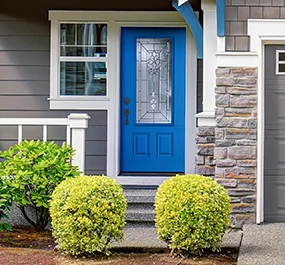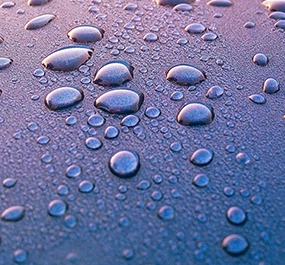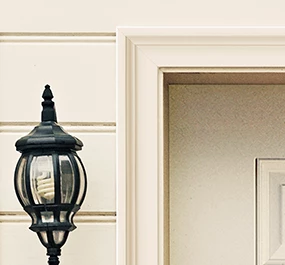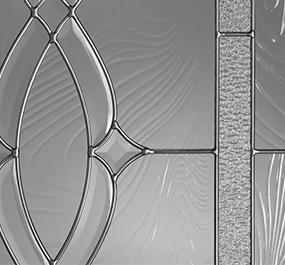In today’s world, prioritizing sustainability and reducing our carbon footprint has become more important than ever. With the increased awareness of climate change and environmental degradation, consumers are seeking products that contribute to a greener future. Fortunately, there are numerous eco-conscious choices we can make, one of which includes opting for fiberglass doors over traditional wood or steel doors. Fiberglass doors are not only an excellent investment for their superior durability and energy efficiency, but companies like Plastpro are also at the forefront of implementing manufacturing processes that significantly contribute to sustainability. Let’s explore the environmental benefits of fiberglass doors and how Plastpro’s efforts align with green living principles.
Superior Energy Efficiency
Fiberglass doors provide excellent insulation compared to wood or steel doors, making them a top choice for energy efficiency Their superior thermal performance helps maintain a consistent indoor temperature, significantly reducing the need for excessive heating in the winter and cooling in the summer. This reduction in energy usage not only translates to lower utility bills but also contributes to a smaller carbon footprint. By keeping your home energy-efficient, fiberglass doors play a crucial role in reducing overall energy consumption. One of the key factors behind the superior insulation properties of fiberglass doors is their ability to prevent heat transfer. Unlike wood, which can warp and create gaps over time, or steel, which can conduct heat and col, fiberglass remains stable and effective as an insulator. This stability ensures that your home remains comfortable regardless of the external weather conditions, leading to a more consistent and enjoyable living environment.
Furthermore, the exceptional insulation properties of fiberglass doors means less strain on your HVAC system. By reducing the frequency and intensity with which your heating and cooling systems need to operate, fiberglass doors help extend the lifespan of these systems. This not only results in lower maintenance costs but also decreases the environmental impact associated with manufacturing and disposing of HVAC units. In addition to their insulating capabilities, many fiberglass doors are designed with energy-efficient cores and advanced weatherstripping. These features further enhance their ability to keep out drafts and prevent energy loss. By choosing fiberglass doors equipped with these technologies, homeowners can maximize their energy savings and improve the overall sustainability of their homes.
Moreover, the energy efficiency of fiberglass doors contributes to a broader environmental benefit. Lower energy consumption means reduced demand on power plants, many of which still rely on fossil fuels. By decreasing this demand, fiberglass doors help reduce greenhouse gas emissions and air pollution, contributing to cleaner air and a healthier planet. Fiberglass doors also offer the flexibility of being customizable to fit various additional insulation or glazing options to further enhance thermal performance. This adaptability ensures that fiberglass doors can meet the specific energy efficiency requirements of any home, regardless of its location or climate. By investing in fiberglass doors, homeowners make a long term commitment to energy efficiency and environmental stewardship. The initial investment in these doors is offset by the significant energy savings and reduced environmental impact over time. As a result, fiberglass doors represent a smart, sustainable choice that aligns with modern eco-conscious living.
Longevity and Durability
Fiberglass doors are known for their exceptional durability and long lifespan, making them an excellent investment for homeowners. Unlike wood doors, which can warp, crack, or rot overtime, fiberglass doors are resistant to these issues, maintaining their structural integrity and appearance for many years. They are also less prone to dents and rust compared to steel doors, which can suffer from these problems, especially in harsh weather conditions. The impressive longevity of fiberglass doors means fewer replacements over years, resulting in less waste and a more sustainable choice for the environment.
A long-lasting door reduces the demand for raw materials and manufacturing processes associated with producing replacement doors, thereby conserving resources and energy. This durability also translates to lower maintenance costs, as fiberglass doors require minimal upkeep compared to wood and steel alternatives. Additionally, fiberglass doors can withstand extreme weather conditions, including high humidity, heavy rain, and intense sunlight, without deteriorating. This resilience ensures that homeowners can enjoy the benefits of a sturdy and reliable door for decades, further reducing the environmental impact of frequent replacements.
Furthermore, the manufacturing processes for fiberglass doors are increasingly becoming more eco-friendly, with many companies adopting sustainable practices. This includes using recycled materials and reducing emissions during production. As a result, the environmental benefits of fiberglass doors extend beyond their use, starting from the point of manufacture. The combination of longevity, minimal maintenance, and sustainable production practices make fiberglass doors an ideal choice for those looking to reduce their environmental footprint while enhancing the security and aesthetic appeal of their homes. In the long run, the durability and resilience of fiberglass doors contribute to a more sustainable future by promoting resource conservation and reducing waste.
Low Maintenance Requirements
One of the standout features of fiberglass doors is their low maintenance requirements, making them a convenient and cost-effective option for homeowners. Unlike wood doors, which need to be painted or stained regularly, fiberglass doors retain their look and structural integrity with minimal upkeep. This means that homeowners can save significant time and money by investing in a fiberglass door.
Fiberglass doors also resist warping, cracking, and insect damage, which are common problems with wood doors. This resistance further reduces the need for repairs and replacements, contributing to their long-term sustainability. Moreover, the materials used in fiberglass doors are often more durable and environmentally friendly compared to traditional wood treatments. This durability ensures that fiberglass doors can withstand harsh weather conditions and daily wear and tear without compromising their appearance or functionality.
The low maintenance requirements of fiberglass doors not only offer practical benefits for homeowners but also align with eco-friendly practices by reducing the need for harmful chemicals and frequent maintenance. This makes fiberglass doors an attractive option for those looking to minimize their environmental footprint while enjoying a long-lasting and aesthetically pleasing dor.
Less Resource Intensive
The production of fiberglass doors is significantly less resource-intensive compared to the manufacturing processes for wood or steel doors. Wood doors require the harvesting of trees, which contributes to deforestation and the depletion of natural forests. This not only affects biodiversity but also impacts the carbon sequestration capabilities of these ecosystems. On the other hand, the process of producing steel doors is highly energy-intensive, involving the extraction and refining of the iron ore, which emits a substantial amount of greenhouse gases.
Fiberglass, however, uses fewer natural resources and generates fewer emissions during production, making it a greener option from the start. The production process for fiberglass doors involves the efficient use of raw materials, reducing waste and minimizing the overall environmental impact. Unlike wood and steel, the materials used in fiberglass doors are often sources and processed in ways that are less damaging to the environment.
Moreover, the reduction of carbon emissions during the manufacturing of fiberglass doors make them an attractive choice for eco-conscious consumers. The energy efficiency of the production process not only conserves valuable resources but also supports the global effort to combat climate change. Fiberglass doors offer a sustainable alternative that aligns with the principles of green living by minimizing the ecological footprint from manufacturing to end-of-life disposal.
In addition, the lightweight nature of fiberglass reduces transportation emissions, further contributing to their eco-friendliness. Less weight means lower fuel consumption during transport, which translates to fewer carbon emissions. This comprehensive approach to sustainability highlights the multiple environmental benefits of choosing fiberglass doors over traditional wood or steel options.
By opting for fiberglass doors, consumers are supporting a product that is designed with the environment in mind, from the efficient use of raw materials to the reduction of carbon emissions. This commitment to sustainability makes fiberglass doors a smart and responsible choice for those looking to make a positive impact on the planet.
Improved Indoor Air Quality
Fiberglass doors can also contribute to better indoor air quality. They do not give off gas-volatile organic compounds (VOCs) as some painted or stained wood doors might. VOCs are chemicals that can evaporate into the air at room temperature, often leading to respiratory issues, headaches, and other health problems when inhaled over time. By choosing fiberglass, you ensure that your home environment remains healthier and free from harmful chemical emissions, promoting overall well-being.
This is particularly beneficial for households with individuals who have allergies, asthma, or other respiratory conditions, as the absence of VOCs helps maintain a cleaner and safer indoor air environment.
Improved indoor air quality not only benefits your health but also reduces the environmental impact associated with the production and use of harmful chemicals. The reduction in VOC emissions from fiberglass doors means fewer pollutants are released into the atmosphere during the manufacturing and finishing processes. This contributes to better outdoor air quality and a decrease in the overall environmental burden associated with door production.
Additionally, the stable and inert nature of fiberglass means that it does not support the growth of mold, mildew, or other allergens that can further compromise the indoor air quality. Unlike wood, which can absorb moisture and become a breeding ground for such contaminants, fiberglass remains unaffected by humidity and temperature fluctuations, ensuring that the air inside your home remains fresh and healthy.
By choosing fiberglass doors, you are not only investing in a durable and sustainable product but also actively contributing to a healthier living environment. The long-term benefits of improved indoor air quality extend beyond personal health, fostering a more sustainable, and eco-friendly lifestyle by minimizing the need for chemical treatments and reducing the overall environmental footprint of your home.
Embrace Eco-Friendly Choices with Plastpro Fiberglass Doors
By selecting fiberglass doors for your home, you make a conscious decision to support sustainability and environmental responsibility. The inherent benefits of fiberglass doors, ensures that you are investing in a product that aligns with your green living values. These doors not only enhance the beauty and functionality of your home but also contributes to a more sustainable future.
Additionally, Plastpro fiberglass doors are known for their durability and low maintenance, which means fewer replacements and less waste over time. This longevity directly translates to reduced resource consumption and a smaller carbon footprint, further solidifying their status as an eco-friendly choice.
With a wide range of stylish designs and finishes, Plastpro fiberglass doors offer the perfect blend of aesthetics, performance, and environmental consciousness, making them the ideal choice for eco-conscious homeowners. Whether you're looking to improve your home's energy efficiency, reduce your environmental impact, or simply enjoy the benefits of a high-quality, low-maintenance door, Plastpro fiberglass doors are a smart, sustainable investment. Choosing Plastpro means you are not just enhancing your home, but also contributing positively to the environment and promoting a greener future for generations to come.
Conclusion
Incorporating eco-friendly choices into your home improvement projects can have a significant positive impact on the environment. Fiberglass doors offer an array of benefits that make them a superior choice over traditional wood or steel doors. From energy efficiency and durability to low maintenance and eco-friendly manufacturing, fiberglass doors represent a smart, sustainable choice for homeowners.
Embrace the advantages of Plastpro fiberglass doors and take a step towards a greener, more sustainable lifestyle, knowing that your choices are making a difference for the planet. By opting for fiberglass doors, you contribute to a future where sustainability and innovation go hand in hand, ensuring a healthier environment for generations to come.
The decision to install Plastpro fiberglass doors is not just about enhancing the aesthetic and functional appeal of your home; it's also a commitment to environmental stewardship. These doors help reduce energy consumption, lower maintenance efforts, and promote a healthier indoor air quality, all while being produced through eco-friendly processes. By choosing fiberglass doors, you are making a positive impact that extends beyond your home, supporting a sustainable and responsible approach to living. take pride in your choice to embrace eco-friendly home improvements with Plastpro fiberglass doors and be part of the movement towards a greener, more sustainable world.
Ready to make the eco-conscious decision to upgrade your entry door to a fiberglass option? Find a dealer near you today to get started!



